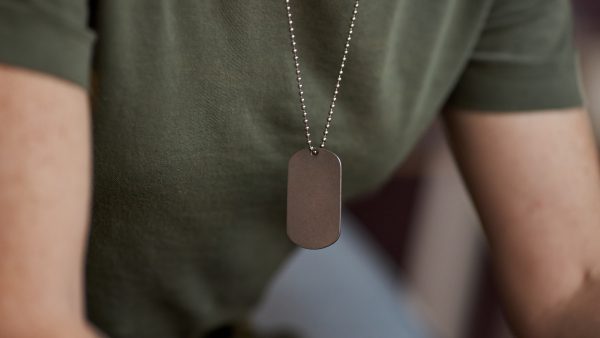Looking for Expert-Level VA Claim Answers?📱Call Us Now! 737-295-2226
If you’ve ever tried to get copies of your military medical records, also known as service treatment records (STRs), you know how frustrating, confusing, and time-consuming it can be.
But there’s good news—there are ways to speed up the process and get what you need without unnecessary delays.
In this high-value blog post, VA disability expert Brian Reese will walk you through step-by-step methods to get your military medical records faster, including a little-known “back door” option that could allow you to download your STRs instantly.
Let’s dive in!
Table of Contents
3-Minute Video: Brian Reese Shares NEW TIPS to Obtain Your Military Medical Records FASTER!
Summary of Key Points
- Multiple Ways to Access Military Medical Records: There are two primary methods for obtaining your service treatment records (STRs): requesting a copy of your VA claims file (C-File) through a FOIA request or submitting a request via the National Archives. The C-File route is generally faster, as it often contains a comprehensive history of military medical and service-related documents.
- Timeframe for Receiving Records Varies: The time it takes to receive records from the National Archives can range from 3 to 12 months or longer, depending on factors such as the complexity of the request, current workload, and any necessary records reconstruction. Emergency requests can be expedited if there is an urgent need, such as for medical treatment or funerals.
- Instant Access Option for Some Veterans: For veterans who served during the period of electronic health records (approximately 2006-2007 or later), STRs may be accessible online via the TRICARE Online Patient Portal. However, this portal will transition to the MHS GENESIS Patient Portal by April 1, 2025, potentially affecting the availability of records.
- Importance of Having Your Military Medical Records: Your military medical records are important evidence for supporting VA disability claims, and having a personal copy ensures that you have access to your medical history for future healthcare needs.
How to Get Your Military Medical Records: The Two Main Ways
There are two primary methods to obtain copies of your military medical records.
Each has its own pros and cons, so choose the one that works best for you.
#1. Request a Copy of Your VA Claims File (VA C-File)
The fastest and most preferred method to get copies of your military medical records is to request a complete copy of your VA C-File.
Why?
Because your VA C-File contains a comprehensive record of your military medical history, and a whole lot more!
There are many different documents in your C File, including but not limited to:
- VA Form 21-526EZ, Application for VA Disability Compensation Benefits
- DD 214, Certificate of Release or Discharge from Active Duty
- Military Medical Records
- VA Medical Records
- Private Medical Records
- Disability Benefits Questionnaires (DBQs)
- Nexus Letters
- Statements in Support of a Claim
- Buddy Letters
- C&P Exam Results (to include private contractor C&P exam results)
- VA Rating Decision Letters
- Appeals (prior Notice of Disagreements, Higher Level Reviews, Supplemental Claims, Board Appeals)
To request your C-File, you’ll need to submit a Freedom of Information Act (FOIA) request to the VA.
Once you’ve completed the VA FOIA request for your C-File, you can submit your request electronically to AccessVA.
You can also mail or fax your VA FOIA request form to:
Department of Veterans Affairs
Evidence Intake Center
PO Box 4444
Janesville, WI 53547-4444
Toll Free Fax Number: (844) 531-7818
Pro Tip: If you haven’t filed a VA claim before, your VA Claims File (C-File) might not contain your military medical records. In this case, you’ll need to use one of the alternative options below to obtain your service treatment records.
How Long Does It Take to Get a Copy of Your VA Claims File (C-File)
The time it takes to receive a copy of your VA C-File can vary significantly.
While some requests are processed in as little as 12-18 weeks, others can take up to 12 months or longer.
The turnaround time depends on factors such as:
- Where your records are stored (digital versus non-digital format)
- The complexity and size of your file
- The current workload of the VA office handling your request
Digital records may be processed faster, while non-digital or older files stored in physical archives could take more time to retrieve and deliver.
#2. Submit a Request for Your Military Medical Records Through the National Archives
If you prefer a more traditional approach, you can request your service treatment records through the National Archives.
For the fastest results, use the eVetRecs Request Veteran Records system, the online request option for military records.
Here’s what you need to do:
- Visit the eVetRecs website and complete the online request form.
- Submit the necessary information to verify your identity and service history.
- Request your service treatment records by selecting the appropriate options.
Alternatively, you can fill out Standard Form 180 (SF-180) and mail or fax it to the National Archives.
However, this method is slower and could take many months to process.
Pro Tip: It’s common to receive a transmittal letter from the National Archives stating that they either can’t find your military medical records or don’t have them. If this happens, read the letter carefully to see where your records might be stored and how to request copies. You can also follow option #1 above and request your VA claims file (C-File).
How Long Does It Take to Get Your Service Treatment Records From the National Archives?
The time it takes to receive service treatment records from the National Archives can vary significantly based on several factors, including the nature of the request and the current workload.
Typically, requests processed through the National Personnel Records Center (NPRC) can take anywhere from 3 to 12 months or longer.
For more complex requests, such as those involving reconstruction due to the 1973 fire, the process can take longer.
Veterans facing urgent needs, such as upcoming surgeries or funerals, can mark their request as an “Emergency Request” to potentially expedite processing.
The “Back Door” Option to Download Your Military Medical Records Online Instantly
Now, let me share a little-known option that might let you download your service treatment records instantly—but this is only available to veterans who served during the period when electronic health records (EHRs) were in use, generally from 2006-2007 or later.
Here’s how you can do it:
- Log in to the TRICARE Online Patient Portal using your DS Logon credentials.
- Once logged in, navigate to “Health Record” and select “Download My Data.”
- Choose the appropriate date range for your time in service and download the records as a .pdf file.
And just like that, you’ll have a detailed copy of your military medical records in .pdf format!
Important Update: Transition to MHS GENESIS Patient Portal
The TRICARE Online Patient Portal (TOL PP) will be decommissioned and unavailable to users after April 1, 2025.
The old site will transition to the new MHS GENESIS Patient Portal (MHSG PP).
Use the MHSG PP for your online healthcare requests and to view your current Health Record (HR) data.
However, note that some military medical records may not be available in the new system, depending on the time of your service.
Why You Need Your Military Medical Records
While you technically don’t need your military medical records to file a VA claim, I recommend you get copies so you know what’s in your military medical history for VA disability purposes.
These records serve as key evidence that can support your case by providing documentation of your service-connected injuries, illnesses, or conditions.
Here’s why you should always obtain copies of your STRs:
- Evidence for VA Claims: Your military medical records can help establish a nexus between your current condition and your military service, a critical factor in winning a VA disability claim. This is especially true for direct service connection.
- High Probative Value: Your service treatment records have high probative value and can make the difference between winning and losing your VA claim.
- Your Personal Medical History: It’s always a good idea to keep a copy of your military medical history for personal reference and future healthcare needs.
Conclusion & Wrap-Up
Obtaining your military medical records doesn’t have to be a headache.
By following the steps outlined in this guide, you can get your STRs faster and without the hassle.
Whether you choose to request your VA C-File, go through the National Archives, or try the “back door” download option, the key is to act quickly, be persistent, and be patient.
Remember, the sooner you get your medical records, the sooner you can build a strong VA disability claim.
About the Author

Brian Reese
Brian Reese is a world-renowned VA disability benefits expert and the #1 bestselling author of VA Claim Secrets and You Deserve It. Motivated by his own frustration with the VA claim process, Brian founded VA Claims Insider to help disabled veterans secure their VA disability compensation faster, regardless of their past struggles with the VA. Since 2013, he has positively impacted the lives of over 10 million military, veterans, and their families.
A former active-duty Air Force officer, Brian has extensive experience leading diverse teams in challenging international environments, including a combat tour in Afghanistan in 2011 supporting Operation ENDURING FREEDOM.
Brian is a Distinguished Graduate of Management from the United States Air Force Academy and earned his MBA from Oklahoma State University’s Spears School of Business, where he was a National Honor Scholar, ranking in the top 1% of his class.




